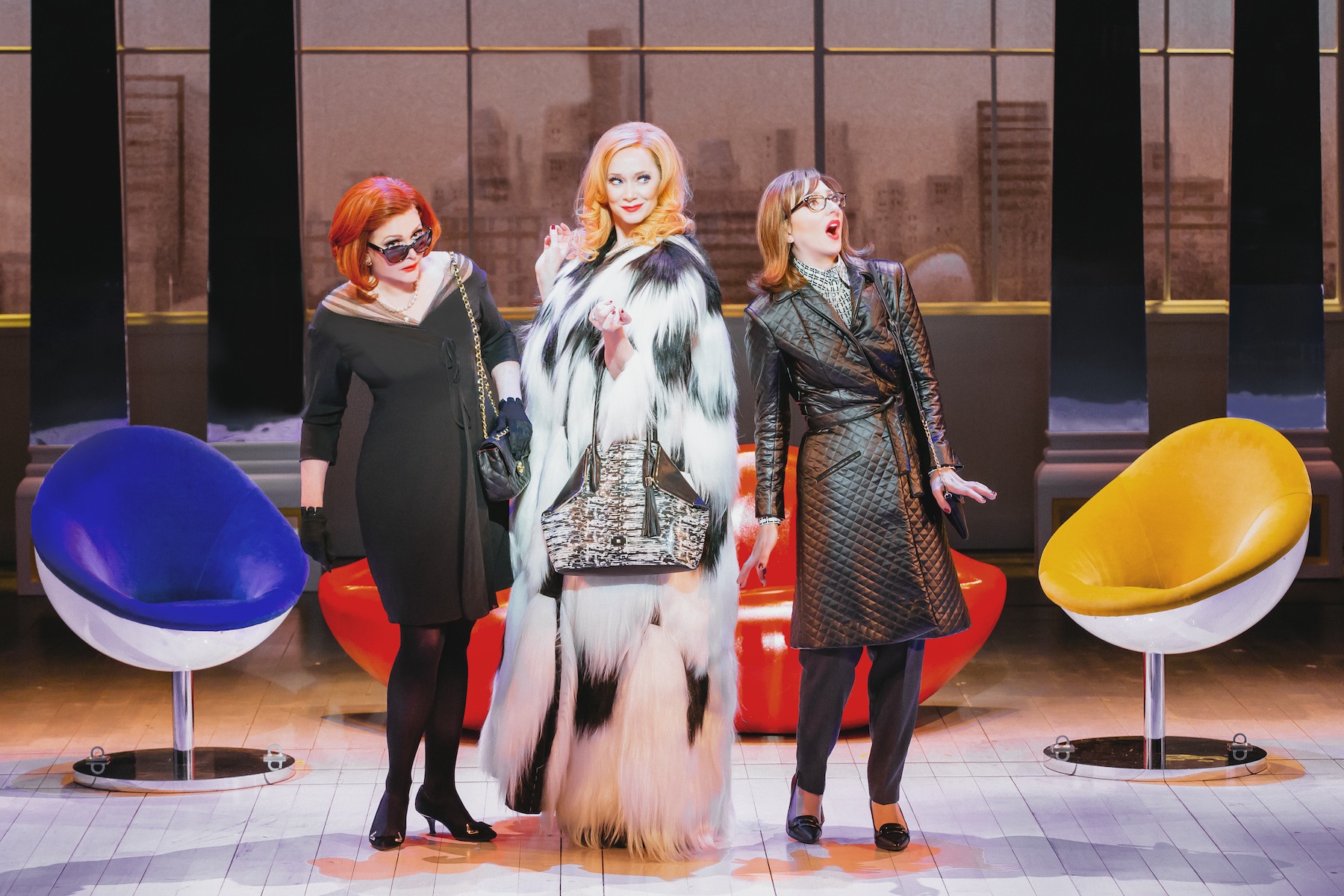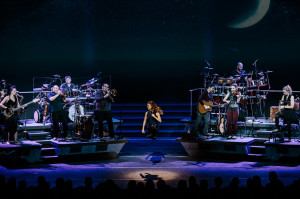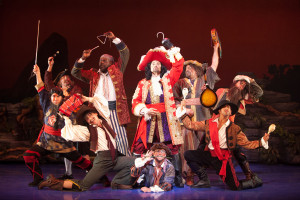First Look review: Despite its strong cast, “First Wives Club” falls a bit flat due due to musical, script issues

By Kathryn Doi
Playing at: Oriental Theatre, 24 W. Randolph, through March 29. www.BroadwayInChicago.com
History: Adapted from the beloved 1996 movie starring Bette Midler, Goldie Hawn and Diane Keaton, and the original book by Olivia Goldsmith — script by Emmy-nominated writer Linda Bloodworth Thomason (Designing Women) and music by Rock & Roll Hall of Fame inductees Holland-Dozier-Holland, who helped create the Motown Sound and penned more than 150 hit pop songs.
Basic storyline: Brenda, Elise and Annie, best friends 20-plus years ago at Sarah Lawrence College, haven’t seen each other since before being reunited at the funeral of their dear college friend Cynthia, who hurls herself off the balcony of her Upper East Side penthouse after her husband leaves her for his nurse. The three friends reconnect over their own marital troubles and grief over the loss of the brightest one among them. Each of their husbands has left them for a younger, sexed-up model, and the jilted ex-wives are out to make them suffer. They make a pact to exact revenge on all three exes, and a grandiose plan takes shape with the help of Brenda’s boisterously outrageous hairdresser, Duane. In the process, stark truths about each of the women are revealed to each other, and they grow past their collective broken hearts into a better sense of themselves.
What stood out: The outstanding cast, particularly the renowned actresses in the main trio — Tony Award winner Faith Prince, Christine Sherrill and Carmen Cusack — gave every bit of themselves in performances that ran the gamut emotionally. The standout supporting cast — the actors playing Duane the chameleon, Shelly the idiotic girlfriend and Leslie the hedonistic therapist — drew the biggest laughs for their slapstick and hilarious physicality. Lovely costumes and props like high-waisted mom pants, brick cell phones, gold lamé and lots and lots of sparkles really captured the ’90s theme of the show.
The script deviated significantly from the movie, which set it apart and made it easier to take in as its own independent production. More problematic were the parts of the show where the dialogue tracked the movie word for word, particularly during the pivotal fight scene among the three leads. Inevitably, if you have grown up with the movie and seen Bette, Diane and Goldie deliver those very same lines, they didn’t have the same impact on stage and felt somewhat forced. The musical overall was better in the parts that were written just for this production, mainly because it avoided the comparison factor.
The biggest letdown of this production was the music. Three incredibly gifted lead actresses belted out songs that did not seem to play to the strength of their voices. Brenda’s showcase song, “My heart wants to try one more time,” was monotonous, one-note and plodding — which is not the fault in any way of Ms. Prince, whose voice is legendary. Some of the songs, such as the opening flashback montage “Forever came today,” were better than others (five versions of “I’m so lucky”) that just felt plugged into gaps and unnecessary. The ones that fell short didn’t lead anywhere, were not catchy and lacked that Motown flair that we were expecting. Before this production mounts on Broadway, several of the songs should be reworked or cut entirely, as they bogged down a show that was already too long (two and a half hours).
Final thoughts: To convert a well-loved chick flick to the stage is a daunting task. I so wanted to love this musical, which seemed like it had promise due to the considerable pedigree of the authors of the book and score. Unfortunately, it fell flat.
The themes of sisterhood and self worth, as well as the hilarious comic delivery of the three leads, are what kept me coming back to re-watch the movie First Wives Club time and time again. On stage, the three leads in this production struggled to find their unity amidst all of the clichéd lines and groan-worthy song lyrics. They just didn’t make us care. Not for a lack of trying, as it may have been opening-night jitters, but probably had more to do with the fact that the script and score still seemed like a work in progress.
What is missing from this production is the bigger picture — it is alluded to at the very end of the musical, and almost dismissively. The true reason that Brenda, Annie and Elise find grace and happiness on the other side is that they were guided by a larger purpose: to provide counseling and aid to women so as to avoid the same fate as befell their beloved Cynthia. But unlike the movie, the musical barely touches on this purpose. Instead, it styles itself mostly as a pandering revenge fantasy against one-dimensional, sex-crazed husbands who are written so hatefully that you can’t help but cheer against them. The husbands and the girls they leave their wives for are such caricatures that the show feels hollow. If the leading men in their lives are that shallow, why would these brilliant ladies go through all the trouble to destroy them?
The original movie has a bit of this same problem, but it seems more glaring here because there is no heart behind the plan, only a desire to shame. That’s just not enough to keep us interested, or feeling good about any of the characters in the end.










